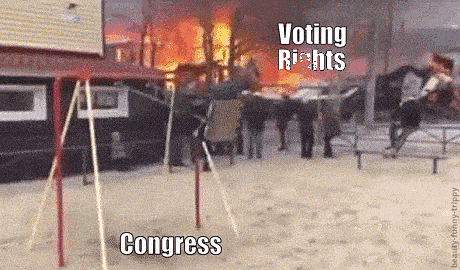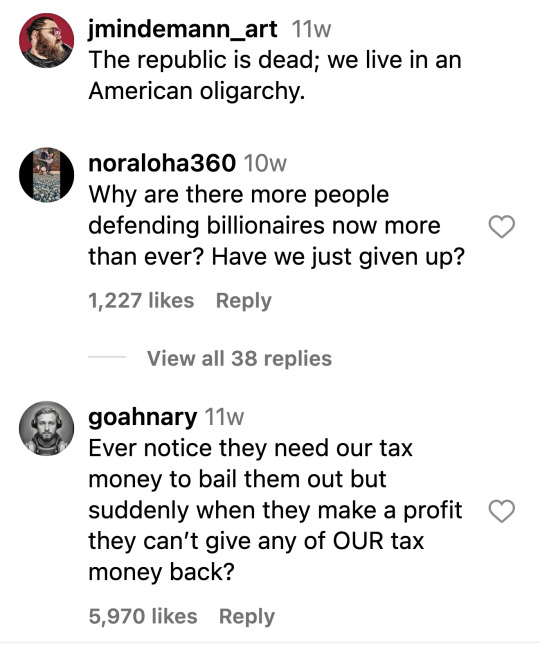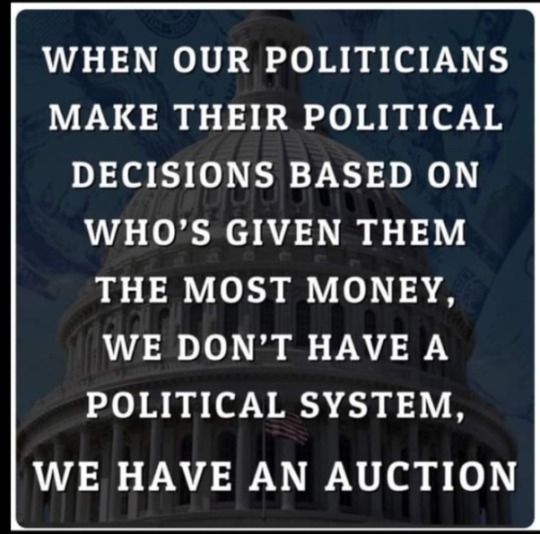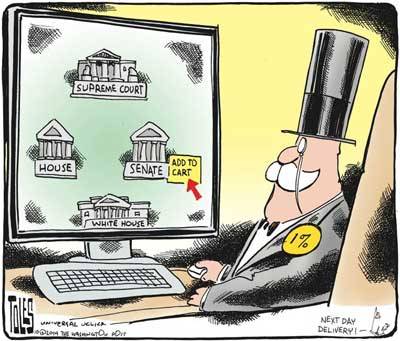#plutocracy
Text

#assück#man is the bastard#crossed out#capitalist casualties#plutocracy#grindcore#powerviolence#punk#show flyer#show poster
151 notes
·
View notes
Link
The "conservative" right wing top percent is buying the next election and who is gonna be their lackey? Rhonda Santis of course. Trump is too unseemly now and shows the billionaires to be the amoral, corrupt capitalists they truly are. DeSantis will keep everyone distracted by his "war on woke" as the ultra rich continue to rob us all blind and destroy our democratic republic in the process.
Since the Citizens United decision by the Supreme Court (rich man’s kangaroo court) the flood gates opened and the wealthy rule the government with legalized bribery.
In a 2015 interview, former President Jimmy Carter stated that the United States is now "an oligarchy with unlimited political bribery" due to the Citizens United v. FEC ruling, which effectively removed limits on donations to political candidates.[15]Wall Street spent a record $2 billion trying to influence the 2016 United States elections.[16][17]
#LincolnProject#NoLabelsGOPSuperPAC#AmericanOligarchs#CorruptCapitalism#CitizensUnited#Plutocracy#Wikipedia
86 notes
·
View notes
Text
In a world built by plutocrats, the powerful are protected while vengeful laws silence their critics
31 notes
·
View notes
Text
Why Democracy is Failing

Okay, let me talk about something a bit more drastic this week. Left wing politics and things along those lines - and a very central point: Democracy is failing. It is. Whether we want to see it or not. It is failing in the USA, and it is failing over here in Germany as well and several other countries. And... I am here to tell you, that this was always wanted.
Now, before I say anything else, let me recommend you the Podcast SceneOn Radio, especially the season "The Land that never has been yet", which deals centrally with democracy in the USA and how the USA never have been constructed to actually be democratic. It also deals with how these things interact with civil rights, but also all sorts of marginalizations.
See, here is the thing: Democracy had to be won from feudalism. And the thing we kinda are being kept from, is who won it and who implemented it.
The people in power were not "defeated". Yes, some people lost their heads (literally), but for the most part... democracy was not won. It was put in place by those people in power, who realized that the chance would be coming, whether they wanted it or not. So, they "relented" by being the one to offer democracy - but under the terms and conditions that were in their favor. Or to put it blatantly: They created a democratic system, which helped them still holding power over more people.
It is no accident that a lot of the early democracies either gave voting rights exclusively to the people owning land - or gave them otherwise more power. With people having to fight to get voting rights for everyone. It is no accident that voting rights for women and marginalized groups had to be fought for differently - and still are often taken away.
And what we see right now is just an effect of that. Even right now people of the owning class hold more influence. You will find that in basically all governments around a large chunk of the government itself is filled with people of the upper classes. Important politicians are from rich families, often from "old money". Folks of the "but what could a banana cost? 100 dollars?!" variety, basically. It is just much harder for people from other classes to make it in politics. Because getting oneself involved in politics takes both time and energy, things not readily available if you have to work 40+ hours in a normal job, while also taking care of your family.
Meanwhile politicians and also the parties are depedent on money. Both to advertise themselves, but also just to keep the lights on. And that money comes mostly from big companies, who know very well how to get around those regulations on how much they are allowed to give to politics and such. And of course this money is given with some strings in place. They want favorable regulations for their company or their industry.
Democracy cannot work like that. This is no "rule of the people", it is the rule of the rich. It is a plutocracy. And it was always meant to be that.
Could it be worse? Sure.
But... I mean, just in Germany. Most people are for the end of coal, but the government ignores them. Most people are for speed limits on our highways. But they are ignored. Most people support queer rights. Most people are for the expansion of worker rights - and guess who gets ignored. Heck, even most people are at least neutral, if not outright favorable towards immigration, but...
43 notes
·
View notes
Text


#american oligarchs#unchecked capitalism#income inequality#wealth concentration#corporate dominance#economic disparity#plutocracy#social stratification#wealth gap#monopolization#elite control#corporate greed#class warfare
15 notes
·
View notes
Text
SVB bailouts for everyone - except affordable housing projects

For the apologists, the SVB bailout was merely prudent: a bunch of innocent bystanders stood in harm’s way — from the rank-and-file employees at startups to the scholarship kids at elite private schools that trusted their endowment to Silicon Valley Bank — and so the government made an exception, improvising measures that made everyone whole without costing the public a dime. What’s not to like?
If you’d like an essay-formatted version of this post to read or share, here’s a link to it on pluralistic.net, my surveillance-free, ad-free, tracker-free blog:
https://pluralistic.net/2023/04/15/socialism-for-the-rich/#rugged-individualism-for-the-poor
But that account doesn’t hold up to even the most cursory scrutiny. Everything about it is untrue. Take the idea that this wasn’t a “bailout” because it was the depositors who got rescued, not the shareholders. That’s just factually untrue: guess where the shareholders kept their money? That’s right, SVB. The shareholders of SVB will get billions in public money thanks to the bailout. Billions:
https://pluralistic.net/2023/03/18/2-billion-here-2-billion-there/#socialism-for-the-rich
But is it really public money? After all, the FDIC payouts come from a pool of funds raised from all of America’s banks. The billions the public put into SVB will be recouped through hikes on the premiums paid by every bank. Well, sure — but who do you think the banks are going to gouge to cover those additional expenses? Hint: it’s not going to be the millionaires who get white-glove treatment and below-cost loans. It’ll be the working people whom the banks steal billions from every year in overdraft fees — 78% of these are paid by 9.2% of customers, the very poorest, and they amortize to a 3,500% loan:
https://pluralistic.net/2021/04/22/ihor-kolomoisky/#usurers
As Adam Levitin put it on Credit Slips:
They will pass those premiums through to customers because the market for banking services is less competitive than the market for capital. In particular, the higher costs for increased insurance premiums are likely to flow to the least price-sensitive and most “sticky” customers: less wealthy individuals. So average Joes are going to be facing things like higher account fees or lower APYs, without gaining any benefit. Instead, the benefit of removing the cap would flow entirely to wealthy individuals and businesses. This is one massive, regressive cross-subsidy. It’s not determinative of whether raising the cap is the right policy move in the end, but this is something that should be considered.
https://www.creditslips.org/creditslips/2023/03/the-regressive-cross-subsidy-of-uncapping-deposit-insurance.html
The SVB apologists display the most curious and bizarre imaginative leaps…and imaginative failings. For them, imagining that regulators will just wing it to the tune of hundreds of billions in public money is simplicity itself. Meanwhile, imagining that those same regulators would say, “Not one penny unless every shareholder agrees to sign away their deposits” is literally impossible.
This bizarrely inconstant imagination carries over into all of the claims used to justify the SVB bailout — like, say, the claim that if SVB wasn’t bailed out, everyone would pile into too big to fail banks like Jpmorgan. This is undoubtably true — unless (and hear me out here!), regulators were to use this failure as a launchpad for public banks, and breakups of Jpmorgan, Wells Fargo, Citi, et al.
This is a very weird imaginative failure. America operated public banks. It had broken up too big to fail banks. These weren’t the deeds of a fallen civilization whose techniques were lost to the mists of time. There are literally people alive today who were around when America operated nationwide public banks — a practice that only ended in 1966! We’re not talking about recovering the lost praxis of the druids who built Stonehenge without power-tools, here.
The most telling imaginative failure of SVB apologists, though, is this: they think that people are angry that the government saved the janitors at startups and the scholarship kids at private schools, and can’t imagine that people are angry that America didn’t save anyone else. If you’re a low-income student at an elite private school, there’s billions on hand to save you — but not because the government gives a damn about you — saving you is a side effect of saving all the rich kids you go to school with.
Likewise, the startup janitors aren’t the target of the bailout — they’re overspill from the billions mobilized to rescue the personal fortunes of tech billionaires who supply VCs’ investment capital. If there was a way to bail out the startups without bailing out the janitors, that’s exactly what would happen.
How do I know this? Well, first of all, the “investors” who demanded — and received — a bailout are on record as hating workers and wanting to fire as many of them as possible. As one of the loudest voices for the bailout said of Twitter employees, in a private message to Elon Musk following the takeover: “Day zero: Sharpen your blades boys 🔪”:
https://pluralistic.net/2023/03/21/tech-workers/#sharpen-your-blades-boys
But there’s even better evidence that the bailout’s intended target was wealthy, powerful people, and every chance to carve out working people was seized upon. When regulators engineered the sale of SVB to First Citizens Bank, they did not require First Citizens to honor SVB’s community development obligations, killing thousands of affordable housing units that had been previously greenlit:
https://calreinvest.org/wp-content/uploads/2021/05/Community-Benefits-Plan-SVB-CRC-GLI.pdf
Tens of thousands of people wrote to regulators, urging them to transfer SVB’s Community Benefits Plan obligation to First Citizens:
https://www.dailykos.com/campaigns/petitions/sign-the-petition-save-affordable-housing-keep-the-promises-silicon-valley-bank-made
As did Rep Maxine Waters, the ranking member of the House Financial Services Committee:
https://democrats-financialservices.house.gov/uploadedfiles/318_cwm_ltr_fdic.pdf
But First Citizens — a bank whose slot in America’s top-20 banks was secured through a string of exceptions, exemptions and waivers — was not required to take on SVB’s obligations to carry out loans to build thousands of affordable housing units in the Bay Area and Boston, including a 112-unit building for people with disabilities planned for a plum spot across from San Francisco City Hall:
https://www.levernews.com/regulators-stiffed-low-income-communities-in-silicon-valley-bank-bailout/
All those people who wanted SVB’s community development obligations to carry forward vastly outnumbered the people calling for billionaires portfolio companies to be saved — but they merely spoke on behalf of people who sought the most basic of human rights — shelter. No one listened to them. Instead, it was the hyperventilating all-caps “investors” who spent SVB’s no-good weekend shouting on Twitter about the fall of civilization who got what they wanted, with a bow on top, and a glass of publicly funded warm milk before bed.
The US finance sector is reckless to the point of being criminally negligent. It constitutes an existential risk to the nation. And yet, every time it gets into trouble, regulators are able to imagine anything and everything to shift their risks to the public’s shoulders.
Meanwhile, everyday people are frozen out. School lunches? Unaffordable. Student debt cancellation? Inconceivable. Help for the hundreds of thousands of NYC schoolchildren whose schools are facing a $469m hack-and-slash attack? That’s clearly impossible:
https://council.nyc.gov/joseph-borelli/2022/09/06/nyc-council-calls-for-mayor-adams-doe-to-fully-restore-469m-in-school-funding/
When it comes to helping everyday people, American elites and their captured champions in the US government have minds that are so rigid and inflexible that it’s a wonder they can even dress themselves. But when the fortunes and wellbeing of the wealthy and powerful are on the line, their minds are so open that some of their brains actually leak out of their ears and nostrils:
https://pluralistic.net/2023/03/15/mon-dieu-les-guillotines/#ceci-nes-pas-une-bailout
Every bank merger is supposed to come with a “public interest analysis.” But these analyses are “perfunctory.” They needn’t be:
https://openyls.law.yale.edu/bitstream/handle/20.500.13051/8305/Kress_Article._Publication__1_.pdf
First Citizens got a hell of a bargain: it paid zero dollars for SVB’s assets, its deposits and its loans. Any losses it incurs from its commercial loans over the next five years will be paid by the FDIC, no questions asked. The inability of regulators to convince First Citizens to assume SVB’s community obligations along with those billions in public largesse speaks volumes.
Meanwhile, SVB’s shareholders continue to claim that their headquarters are a relatively unimportant office in Manhattan, and not their glittering, massive corporate offices in San Jose, as part of their bid to shift their bankruptcy proceeding to the Southern District of New York, where corporate criminals like the Sackler opioid family have found such a warm reception that they were able to escape “bankruptcy” with billions in the bank, while their victims were left in the cold:
https://pluralistic.net/2023/03/18/2-billion-here-2-billion-there/#socialism-for-the-rich
Contrary to what SVB’s apologists think, the case against them isn’t driven by spite — it’s driven by fury. America’s “socialism for the rich, rugged individualism for the poor” has been with us for generations, but rarely is it so plain as it is in this case.

There’s only two days left in the Kickstarter campaign for the audiobook of my next novel, a post-cyberpunk anti-finance finance thriller about Silicon Valley scams called Red Team Blues. Amazon’s Audible refuses to carry my audiobooks because they’re DRM free, but crowdfunding makes them possible.
[Image ID: A glass-and-steel, high-tech office building. Atop it is a cartoon figure of Humpty Dumpty, whose fall has been arrested by masses of top-hatted financiers, who hold fast to a rope that keeps him in place. At the foot of the office tower is heaped rubble. On top of the rubble is another Humpty Dumpty figure, this one shattered and dripping yolk. Protruding from the rubble are modest multi-family housing units.]
Image:
Lydia (modified)
https://commons.wikimedia.org/wiki/File:Vicroft_Court_Starley_Housing_Co-operative_%282996695836%29.jpg
Oatsy40 (modified)
https://www.flickr.com/photos/oatsy40/21647688003
Håkan Dahlström (modified)
https://www.flickr.com/photos/93755244@N00/4140459965
CC BY 2.0
https://creativecommons.org/licenses/by/2.0/deed.en
#pluralistic#housing crisis#svb#silicon valley bank#plutocracy#bailouts#affording housing#socialism for the rich#rugged individualism for the poor#regional banking#community development banks#housing
89 notes
·
View notes
Text
Billionaires should not be able to hide.
10 notes
·
View notes
Photo

"Government" or "Democracy"?
This is a "classic" from a few years ago, but in this era of plutocratic libertarian-authoritarianism, the message bears repeating. Since the Reagan era, the message that "government is bad" has been drilled into Americans' noggins. But as I wrote at the time I drew this cartoon, in a healthy democracy government exists as a check on abuses of power by moneyed interests. While government can be corrupt to varying degrees (with Citizens United certainly not helping), the fashionably cynical belief that all government is inherently corrupt is an idea that enables corruption.
Help keep this work sustainable by joining the Sorensen Subscription Service! Also on Patreon.
31 notes
·
View notes
Photo

Plutocratic Power and Its Perils :: April 17, 2023
By Paul Krugman
Opinion Columnist
The rich are different from you and me: They have immensely more power. But when they try to exercise that power they can trap themselves — supporting politicians who will, if they can, create a society the rich themselves wouldn’t want to live in.
This, I’d argue, is the common theme running through four major stories that have been playing out over the past few months. They are: the relationship between Justice Clarence Thomas and the billionaire Harlan Crow; the rise and seeming decline of Ron DeSantis’s presidential campaign; the trials (literally) of Fox News; and the Muskopalypse at Twitter.
First, some notes on the role of vast wealth in a democracy.
People on the right often insist that expressing any concern about highly concentrated wealth is “un-American.” The truth, however, is that worrying about the dangers great wealth poses for democracy is very much part of the American tradition. And our nation basically invented progressive taxation, which was traditionally seen not just as a source of revenue but also as a way to limit excessive wealth.
In fact, if you read what prominent figures said during the Progressive Era, many expressed views that would be hysterically denounced as class warfare today. Theodore Roosevelt warned against “a small class of enormously wealthy and economically powerful men, whose chief object is to hold and increase their power.” Woodrow Wilson declared, “If there are men in this country big enough to own the government of the United States, they are going to own it.”
How does great wealth translate into great power? Campaign finance is dominated by a tiny number of extremely rich donors. But there are several other channels of influence.
Until recently I would have said that outright corruption — direct purchase of favors from policymakers — was rare. ProPublica’s revelation that Justice Thomas enjoyed many lavish, undisclosed vacations at Crow’s expense suggests that I may have been insufficiently cynical.
Beyond that, there’s the revolving door: Former politicians and officials who supported the interests of the wealthy find comfortable sinecures at billionaire-supported lobbying firms, think tanks and media organizations. These organizations also help shape what military analysts call the “information space,” defining public discourse in ways that favor the interests of the superrich.
Despite all that, however, there’s only so much you can achieve in America, imperfect and gerrymandered as our democracy may be, unless you can win over large numbers of voters who don’t support a pro-billionaire economic agenda.
It’s a simplification, but I think fundamentally true, to say that the U.S. right has won many elections, despite an inherently unpopular economic agenda, by appealing to intolerance — racism, homophobia and these days anti-“wokeness.” Yet there’s a risk in that strategy: Plutocrats who imagine that the forces of intolerance are working for them can wake up and discover that it’s the other way around..
For a while DeSantis seemed to be surging in the race for the 2024 Republican presidential nomination. Much of his apparent rise reflected support from big G.O.P. donors, who saw him as a saner alternative to Donald Trump — someone who would serve their financial interests while attracting working-class support with his social conservatism and willingness to play footsie with conspiracy theories.
But some of those donors are now bailing, because it looks increasingly as if DeSantis’s intolerance and conspiracy theorizing weren’t a political show — they’re who he really is. And the big money was looking for a charlatan, not a genuine fanatic.
Among the forces pushing a DeSantis candidacy has been Rupert Murdoch’s Fox News. Fox was essentially founded to carry out the right-wing strategy of pushing plutocratic policy while winning over working-class whites with intolerance and conspiracy theories. But emails and texts uncovered by the defamation suit by Dominion Voting Systems show that Fox has become a prisoner of the audience it created. It found itself endorsing claims about a stolen election, even though its own people knew they were false, because it feared losing market share among viewers who wanted to believe the Big Lie.
And does anyone doubt that if the Republican primary goes the way it seems to be heading, Fox will soon be back in Trump’s corner?
Rupert Murdoch’s organization, then, has effectively been taken hostage by the very forces he helped conjure up.
But Elon Musk’s story is, if anything, even sadder. As Kara Swisher recently noted for Time magazine, he’s become “the world’s richest online troll.” The crazy he helped foment hasn’t taken over his organization — it has taken over his mind.
I still believe that the concentration of wealth at the top is undermining democracy. But it isn’t a simple story of plutocratic rule. It is, instead, a story in which the attempts of the superrich to get what they want have unleashed forces that may destroy America as we know it. And it’s terrifying.
11 notes
·
View notes
Text
By George Monbiot
The Guardian
July 15, 2023
Climate breakdown and crop losses threaten our survival, but the ultra-rich find ever more creative ways to maintain the status quo
According to Google’s news search, the media has run more than 10,000 stories this year about Phillip Schofield, the British television presenter who resigned over an affair with a younger colleague. Google also records a global total of five news stories about a scientific paper published last week, showing that the chances of simultaneous crop losses in the world’s major growing regions, caused by climate breakdown, appear to have been dangerously underestimated. In mediaworld, a place that should never be confused with the real world, celebrity gossip is thousands of times more important than existential risk.
The new paper explores the impacts on crop production when meanders in the jet stream (Rossby waves) become stuck. Stuck patterns cause extreme weather. To put it crudely, if you live in the northern hemisphere and a kink in the jet stream (the band of strong winds a few miles above the Earth’s surface at mid-latitudes) is stuck to the south of you, your weather is likely to be cold and wet. If it’s stuck to the north of you, you’re likely to suffer escalating heat and drought.
In both cases, the stuck weather, exacerbated by global heating, affects crops. With certain meander patterns, several of the northern hemisphere’s major growing regions – such as western North America, Europe, India and east Asia – could be exposed to extreme weather at the same time, hammering their harvests. We rely for our subsistence on global smoothing: if there’s a bad harvest in one region, it’s likely to be counteracted by good harvests elsewhere. Even small crop losses occurring simultaneously present what the paper calls “systemic risk”.
Already, regional climate shocks have helped cause a disastrous reversal in the trend of global chronic hunger. For many years, the number of hungry people fell. But in 2015 the trend turned and has been curving upwards since. This is not because of a lack of food. The most likely explanation is that the global food system has lost its resilience. When complex systems lose resilience, instead of damping the shocks that hit them, they tend to amplify them. The shocks amplified across the system so far have landed most heavily on poor nations that depend on imports, causing local price spikes even when global food prices were low.
If this happens when harvests are affected in just one country or one region, we can only imagine the results if extreme weather simultaneously hits several major growing regions.
Other papers have been published with similar themes, showing, for example, the impacts of the rising frequency of “flash droughts” and concurrent heatwaves in grain-producing regions, and how global heating hits food security. All have been largely or entirely ignored by the media.
We face an epochal, unthinkable prospect: of perhaps the two greatest existential threats – environmental breakdown and food system failure – converging, as one triggers the other.
There are plenty of signs, some of which I’ve tried to explain in the Guardian and, with a sense of rising urgency, in a presentation to parliament, suggesting that the global food system may not be far from its tipping point, for structural reasons similar to those that tanked the financial sector in 2008. As a system approaches a critical threshold, it’s impossible to say which external shock could push it over. Once a system has become fragile, and its resilience is not restored, it’s not a matter of if and how, but when.
So why isn’t this all over the front pages? Why, when governments know we’re facing existential risk, do they fail to act? Why is the Biden administration allowing enough oil and gas drilling to bust the US carbon budget five times over? Why is the UK government scrapping the £11.6bn international climate fund it promised? Why has Labour postponed its £28bn green prosperity fund, while Keir Starmer is reported to have remarked last week “I hate tree huggers” (a pejorative term for environmental campaigners)? Why are the Sun, the Mail, the Telegraph and the Express competing to attack every green solution that might help to prevent climate chaos? Why does everything else seem more important?
The underlying problem isn’t hard to grasp: governments have failed to break what the economist Thomas Piketty calls the patrimonial spiral of wealth accumulation. As a result, the rich have become ever richer, a process that seems to be accelerating. In 2021, for example, the ultra-rich captured almost two-thirds of all the world’s new wealth. Their share of national income in the UK has almost doubled since 1980, while in the US it’s higher than it was in 1820.
The richer a fraction of society becomes, the greater its political power, and the more extreme the demands it makes. The problem is summarized in one sentence in the resignation letter of the UK environment minister Zac Goldsmith: instead of attending a crucial environment summit, Rishi Sunak went to Rupert Murdoch’s summer party. We cannot work together to solve our common problems when great power is in the hands of so few.
What the ultra-rich want is to sustain and extend the economic system that put them where they are. The more they have to lose, the more creative their strategies become. As well as the traditional approach of buying media outlets and pouring money into the political parties that favour them, they devise new ways of protecting their interests.
Corporations and oligarchs with massive fortunes can hire as many junktanks (so-called thinktanks), troll farms, marketing gurus, psychologists and micro-targeters as they need to devise justifications and to demonise, demoralise, abuse and threaten people trying to sustain a habitable planet. The junktanks devise new laws to stifle protest, implemented by politicians funded by the same plutocratic class.
It could scarcely be more screwed up. The effort to protect Earth systems and the human systems that depend on them is led by people working at the margins with tiny resources, while the richest and most powerful use every means at their disposal to stop them. Can you imagine, in decades to come, trying to explain this to your children?
Looking back on previous human calamities, all of which will be dwarfed by this, you find yourself repeatedly asking “why didn’t they … ?” The answer is power: the power of a few to countermand the interests of humanity. The struggle to avert systemic failure is the struggle between democracy and plutocracy. It always has been, but the stakes are now higher than ever.
64 notes
·
View notes
Text
An excerpt:
The “Conservative dilemma” goes like this:
Conservatives represent the interests of a few wealthy people.
Their economic policies are unpopular.
So when more people are allowed to vote, conservatives have a problem.
Plutocracy is incompatible with democracy for two reasons: (1) most people will not knowingly vote to keep a plutocrat in power when that plutocrat is essentially robbing them, so plutocrats have trouble winning elections the normal way, by putting forward their policies and plans. (2) As more money becomes concentrated in the hands of a few people, power, too, becomes increasingly concentrated in the hands of a few people.
Plutocracy is not new in the United States. Slavery, after all, was a plutocracy, as was the era of robber barons. (Heather Cox Richardson in her book To Make Men Free refers to these as our first two oligarchies. We are now heading toward a third.) The Civil War got us out of the first oligarchy. Roosevelt’s New Deal got us out of the second.)
To win elections with unpopular economic positions, plutocrats can either:
Move to the center by agreeing to implement economic policies that benefit more people, or
Consolidate minority power so they don’t have to compromise on economic issues.
Beginning with Nixon, guess which the Republicans chose.
To win elections with unpopular policies, the Republicans formed an alliance with Fox, the NRA, and white Evangelical groups. The alliances worked like this: Fox, the NRA, and Christian nationalist groups turned out voters. In exchange, the Republican candidates and elected officials gave them the social policies they wanted: Get rid of abortion, deregulate guns, etc.
You see, plutocrats don’t care about things like guns and abortions, but they needed the votes, so they made a deal with organizations that could turn out voters.
At first, outsourcing voter mobilization was a boon to Republican candidates, but to please their audiences, talk show hosts like Tucker Carlson swung farther to the right. Meanwhile, because Republican elected officials needed Fox to turn out voters, Fox began exerting more influence on Republican candidates, creating a radicalization cycle. As these organizations moved farther to the right to accommodate their readership, Republican officials had to similarly move to the right to win their votes. Even so-called moderates like Mitt Romney were forced to make deals with Fox and other right-wing groups.
The difference between so-called Republican “moderates” and crazies like Marjorie Taylor Greene is that the moderates made a deal with right-wing extremists and Greene is a right-wing extremist. (I would add that moderates like Romney are also simply plutocrats.)
Before Trump, Republican candidates would position themselves far to the right to win primaries, and then adopt a more moderate stance in the general election. By 2016, the base had enough of that. They were tired of voting for candidates who they felt gave their issues lip service in the primaries and then, in the general election, promised to govern from the center-right. So they went for Trump. No more Mitt Romneys. No more candidates making deals with the far right. They wanted someone who was far right.
What looked like a 2015-2016 Republican civil war (moderates v. far right wing) was simply the Republican Party officials, including people like Lindsay Graham, panicking because Trump refused to hide his racism and extremism behind euphemisms and dog whistles. But when Trump won the nomination, the Republican leadership fell in line.
Another way to say the same thing: To win elections, Nixon and Reagan invited white Supremacists and Christian nationalists into the party. Now the white Supremacists and Christian nationalists have taken control.
Yet another way to say the same thing: To stay in power, plutocrats have employed strongman psychology: They promise to protect their supporters from their “enemies” (woke Democrats who want access to abortion and gun regulations, and who refuse to lie about American history).
Plutocrats offering “protection,” leads to what Timothy Snyder calls sadopopulism, which works like this:
Plutocratic leaders enact policies designed to protect their own wealth. For example, they lower taxes on the wealthy and remove access to healthcare for those who are not wealthy.
These policies inflict suffering on the people.
The leader blames their pain on the “enemies” (immigrants, minorities, migrants seeking asylum, Democrats, etc.)
The richer the plutocrats become, the more general suffering exists in the population, so there is more anger to direct against the “enemies”, thereby creating a need for a strongman to “protect” the “victims.”
There are no magic bullets. The only way to contain the threat of right-wing extremism is for Democrats to win the upcoming elections, which can put into motion another cycle that would favor the expansion of liberal democracy.
17 notes
·
View notes
Text
As a communist, I don’t claim that communism is some kind of utopia. It’s just better than capitalism.. Especially declining capitalism.
13 notes
·
View notes
Link
Slide into incompetence
7 notes
·
View notes



